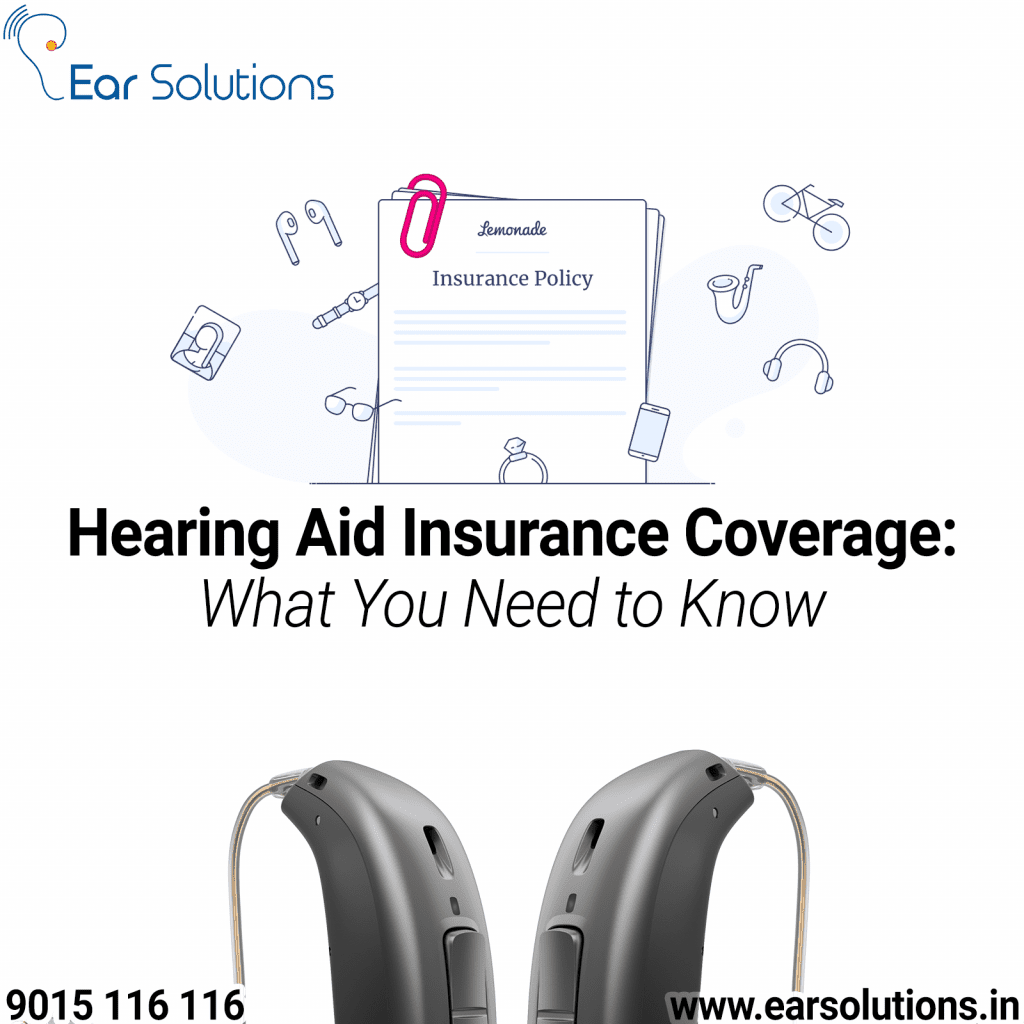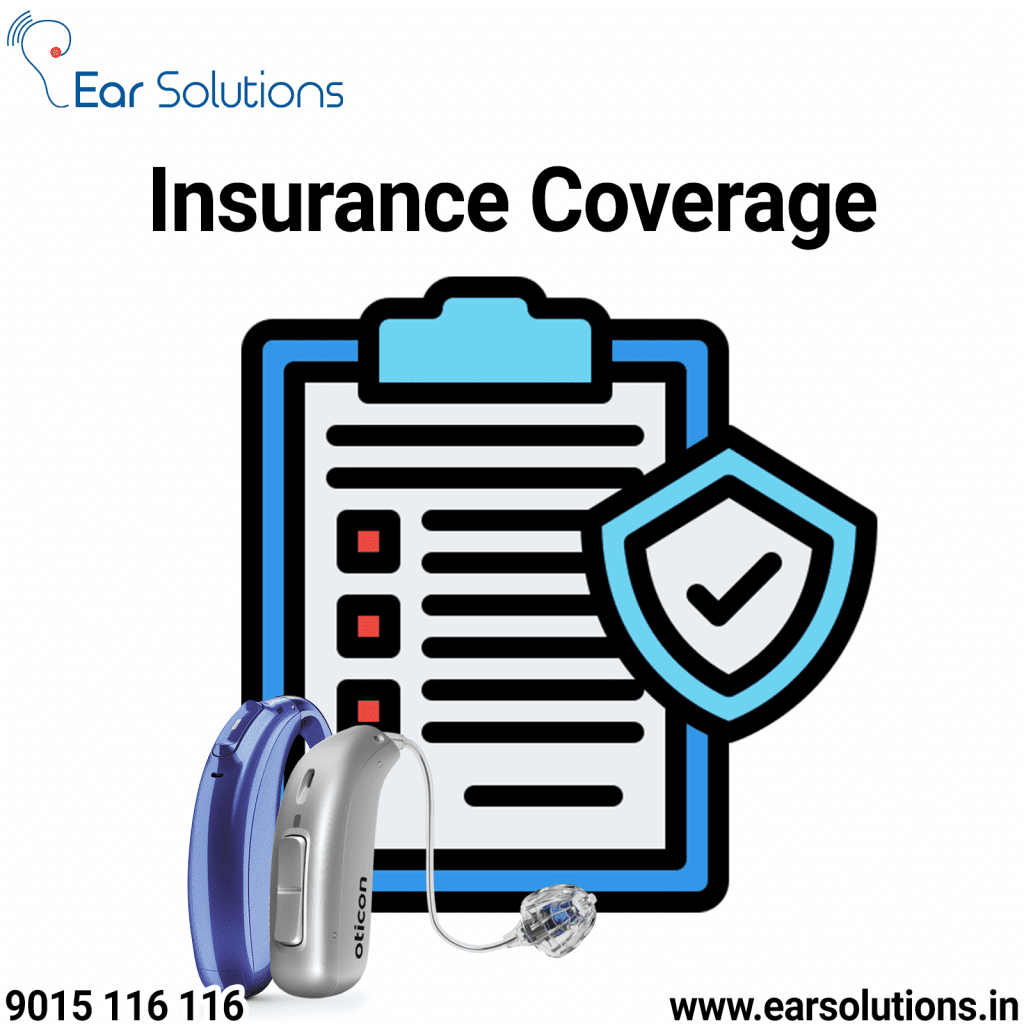
Hearing loss is a common condition that affects people of all ages. It can be caused by a variety of factors, including genetics, exposure to loud noises, and aging. Fortunately, hearing aids can help manage hearing loss and improve quality of life for those who use them. However, hearing aids can be expensive, which is why it’s important to understand your insurance coverage options.
In this blog post, we’ll explore hearing aid insurance coverage and what you need to know about it.
What is Hearing Aid Insurance Coverage?
Hearing aid insurance coverage is a type of insurance that helps cover the cost of hearing aids. Some insurance plans cover the full cost of hearing aids, while others may only cover a portion of the cost. It’s important to check with your insurance provider to understand what type of coverage you have.
There are several different types of insurance plans that may offer hearing aid coverage, including:
- Health Insurance: Some health insurance plans cover the cost of hearing aids, but this coverage can vary depending on the plan. It’s important to check with your insurance provider to understand what type of coverage you have.
- Medicare: Medicare Part B may cover the cost of hearing aids if you meet certain criteria. However, this coverage is limited and may only cover a portion of the cost.
- Medicaid: Medicaid may cover the cost of hearing aids for those who qualify. However, coverage can vary by state.
- Private Insurance: Some private insurance plans may offer hearing aid coverage as a benefit. It’s important to check with your insurance provider to understand what type of coverage you have.

What to Look for in Hearing Aid Insurance Coverage
When it comes to choosing a hearing aid insurance plan, there are several things to consider:
- Coverage: The first thing to consider is the level of coverage the plan offers. Some plans may cover the full cost of hearing aids, while others may only cover a portion of the cost.
- Premiums: Another thing to consider is the cost of premiums. Some plans may have higher premiums but offer better coverage, while others may have lower premiums but offer less coverage.
- Deductibles: Some plans may have deductibles that you’ll need to meet before coverage kicks in. It’s important to understand how much your deductible is and how it works.
- Out-of-Pocket Costs: Even with insurance coverage, you may still be responsible for some out-of-pocket costs. It’s important to understand what these costs are and how much you’ll be responsible for.
- Network: If you have a preferred provider for hearing aids, it’s important to make sure that provider is in the plan’s network.
- Reviews: Lastly, it’s always a good idea to read reviews of the insurance plan before choosing it. This can give you an idea of what other people’s experiences have been with the plan.
Tips for Getting the Most Out of Your Hearing Aid Insurance Coverage
Once you have chosen an insurance plan that offers hearing aid coverage, there are several things you can do to get the most out of your coverage:
- Read the Fine Print: Make sure you understand what is and isn’t covered under your plan.
- Get Pre-Approval: Before purchasing hearing aids, make sure to get pre-approval from your insurance provider. This can help ensure that the hearing aids you purchase are covered under your plan.
- Compare Prices: Shop around to compare prices on hearing aids. Even with insurance coverage, the cost of hearing aids can vary widely, so it’s important to do your research.
- Negotiate: If the cost of hearing aids is still too high, try negotiating with the provider. They may be willing to work with you on the price.
When it comes to hearing aid insurance coverage, there are many variables to consider. Every insurance plan is different, and coverage can vary greatly depending on the individual policy. It is essential to understand the specifics of your insurance plan to know what benefits you have available to you.
Hearing aids can be expensive, and while many insurance plans cover some or all of the cost of hearing aids, others do not. It is important to do your research and know your options when it comes to hearing aid insurance coverage.
Here are some important things to consider when it comes to hearing aid insurance coverage:
- Check your insurance plan: The first step in determining if your insurance covers hearing aids is to check your insurance plan. Most insurance companies have a detailed breakdown of what is covered and what is not. Some plans have limited coverage, while others provide more comprehensive benefits.
- Medicare and Medicaid: Medicare typically does not cover the cost of hearing aids, but Medicaid may provide coverage. The level of coverage will vary depending on the state you live in and the specific Medicaid plan you have.
- Private Insurance: Private insurance plans may provide coverage for hearing aids. However, the level of coverage will vary depending on the plan. Some plans may provide coverage for the full cost of the hearing aids, while others may provide a partial benefit.
- Employee benefits: Some employers offer hearing aid coverage as part of their employee benefits package. This coverage may be a stand-alone benefit or included in a more comprehensive healthcare plan.
- Out-of-pocket expenses: If your insurance plan does not provide coverage for hearing aids or only covers a portion of the cost, you may need to pay out-of-pocket expenses. It is important to factor in the cost of hearing aids when planning your budget.
- Financing options: Many hearing aid providers offer financing options to help make hearing aids more affordable. These options may include payment plans or financing through third-party lenders.
- Reimbursement programs: Some organizations offer reimbursement programs for hearing aids. These programs may be available for individuals who meet certain eligibility requirements, such as low-income individuals or veterans.




